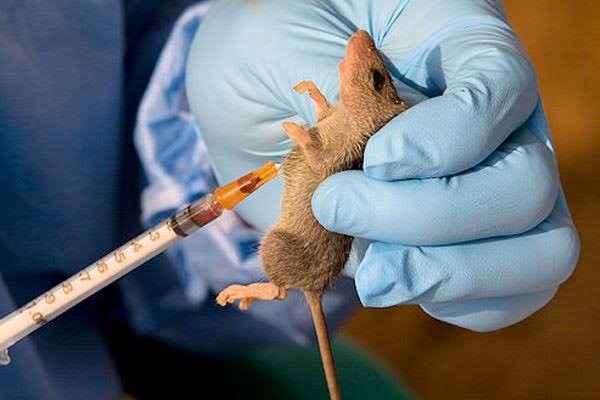Most Recent News
No Lassa Fever Case in FUL as Varsity Medical Center Issues Health Advisory
-
 Chris Yahaya
Chris Yahaya
- April 9, 2024, 3:17 pm

As we continue to navigate the challenges posed by infectious diseases, it is important to remain vigilant and informed about potential health issues. Lassa fever is a viral illness that is endemic in parts of West Africa, including Nigeria. In Nigeria, Lassa fever season runs from approximately December to April. In total for 2024, 27 States in Nigeria have recorded at least one confirmed case across 123 Local Government Areas. Even though the worst affected States currently are Bauchi, Taraba, Edo, Ondo, Plateau, Benue, Cross River, Rivers, Anambra, and Ebonyi States, the University Health Services of Federal University Lokoja has currently recorded no confirmed case. Notwithstanding, it is important to know more about the disease, its transmission, symptoms, and role in prevention and control of the disease.
Lassa fever is caused by the Lassa virus, which is primarily transmitted to humans through contact with food or household items contaminated with rodent urine or feces, particularly those of the multimammate rat found in West Africa. Additionally, human-to-human transmission can occur through direct contact with bodily fluids of an infected person, particularly in healthcare settings. Health care workers are at the greatest risk of human-to-human transmission due to their contact with the body fluids of infected persons.
Recognizing Symptoms
Symptoms of Lassa fever typically appear between 6 to 21 days after exposure and may include fever, headache, sore throat, cough, nausea, vomiting, diarrhea, muscle aches, chest pain, and in severe cases, bleeding from the mouth, nose, or any other bodily openings.
Prevention
Practice Good Hygiene: Wash hands frequently with soap and water, especially before handling food, after using the restroom, and after coming into contact with potentially contaminated surfaces.
Avoid Contact with Rodents: It is important to take measures to rodent-proof living spaces by sealing cracks and holes, getting rid of rats in the house, especially the kitchen, storing food in rodent-proof containers, covering food, and keeping the surroundings clean.
Cook Food Thoroughly: Ensure that all food items, particularly grains and legumes, are cooked thoroughly before consumption to eliminate the risk of contamination.
Use Personal Protective Equipment: Health workers are advised to be very careful in handling body fluids of patients who present themselves especially with unrelenting fever after treatment with both antimalarials and antibiotics, and or any of the signs and symptoms of Lassa fever. It is important to use appropriate protective gear such as gloves, masks, and goggles and maintain infection prevention and control guidelines at all times.
Seek Medical Attention Promptly: Presenting yourself to the University Health Services early enough is important if you suspect you have developed symptoms suggestive of Lassa fever. Early diagnosis and treatment can improve outcomes in confirmed cases of Lassa fever.
Stay Informed
It is imperative to continually keep oneself updated on the latest developments regarding Lassa fever through reliable sources such as the World Health Organization (WHO), the Nigerian Centers for Disease Control and Prevention (NCDC), and the Directorate of University Health Services of the Federal University Lokoja.
Remember, your health is your greatest asset, and taking proactive steps to protect it is always worthwhile.
Stay safe and healthy!
Directorate of University Health Services, Federal University Lokoja
Latest News
-
CSR: FUL Music Department Students Wow Governor Usman Ododo as Management Presents First Ever Kogi Anthem to State Government
July 17, 2024, 7:30 pm -
Power Generation: FUL Partners US-Based Company to Generate Electricity from Waste
July 17, 2024, 5:28 pm -
Groundbreaking Ceremony of Engr. Dr. Joseph Oyeyani Makoju Memorial Hall at FUL
July 13, 2024, 2:30 pm -
FUL Management Holds Familiarization Meeting with New Governing Council Amidst High Expectations
July 12, 2024, 10:20 pm -
CIPM Kogi State Branch Seeks Collaboration with FUL Registrar, Dr. Rebecca Okojie
July 12, 2024, 1:30 pm -
Groundbreaking Ceremony of Engr. Joseph Oyeyani Makoju Memorial Hall at Federal University Lokoja
July 12, 2024, 8:30 am -
FUL VC Lauds Senator Natasha's People-oriented Programmes as Lawmaker Pledges Support for Kogi Varsity
July 11, 2024, 10:34 pm -
Notice of FUL 20th Inaugural Lecture to be Delivered by Professor David Kolawole Omole
July 11, 2024, 4:12 pm